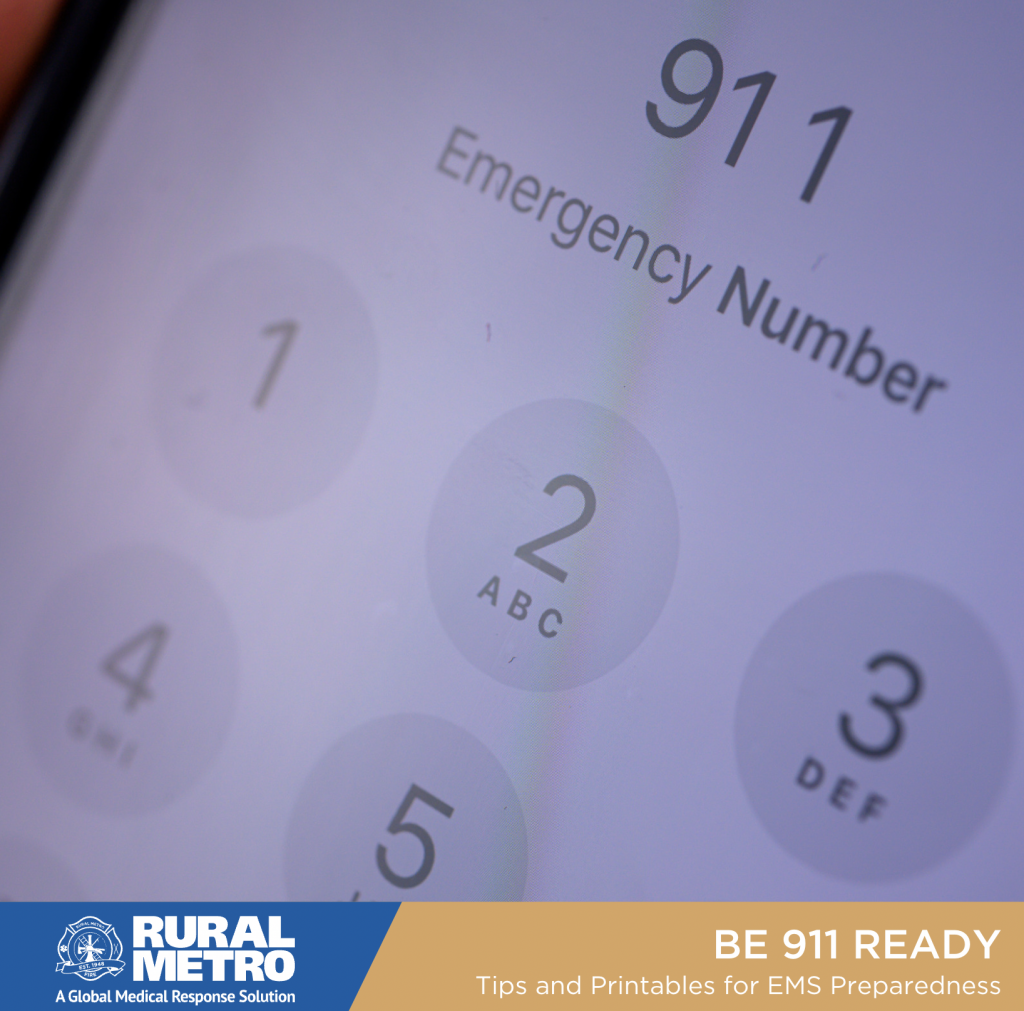Emergencies at Home – How to be ready for Rural Metro
Emergencies can happen anywhere and sometimes they happen in the home. From medical emergencies to structure fires, the following tips will help you and your family be prepared if you experience an emergency at home.
Before Calling 911
If you have a medical emergency at home, it’s helpful to have a list of medications with dosages and frequency posted on your refrigerator or medicine cabinet like the EMS Information Sheet linked in this post. This will help our EMS crews and your doctor if transported to the hospital.
On this list of medications, list any surgeries or chronic medical conditions. Knowing about high blood pressure, diabetes, and other chronic medical conditions can help to more quickly inform the best course of action for your treatment, especially if you are unconscious or confused when our crews arrive.
Have emergency contacts on your phone or on your EMS information sheet so that we can reach out to whomever you designate if you cannot speak for yourself. Indicate if this person is your legal Power of Attorney.
Speaking of legal documents, for those who have advanced directives, post a copy of these documents wherever you post your EMS Information Sheet.
After calling 911
Turn on exterior house lights and have someone wait to flag down EMS. This can save critical minutes when there is an emergency.
Put away pets. During stressful events, cats and dogs can become agitated and aggressive. For the safety of first responders and your pets, put your pets in another room.
Remove obstacles to the patient. If there are boxes, furniture or other obstacles between the entrance and the patient, try to remove them for easier and faster access.
For Fire Emergencies it is important to pre-plan an escape strategy and designate a meeting point outside the home for your family to meet and be accounted for. If there are second-story bedrooms, prepare for fire by purchasing escape ladders. If you become trapped in a second story room, indicate your presence by putting a sheet or article of clothing out of the window (then close the window to avoid feeding the fire.)
Make children familiar with their local firefighters. Fires are frightening for small children, who tend to hide, which can make extrication difficult. Rural Metro Fire hosts many community education events throughout our service areas and even offers in-home safety inspections which are free to our members. We are happy to help you educate your children on fire safety, escape planning and familiarize them with what to expect during a fire.
Do not return to a structure to retrieve personal belongings or pets. Once you are out stay out. Likewise, do not use precious minutes to try and locate pets. Many pets act instinctually and can extricate themselves if there is an escape available. If your pets are caged, alert the firefighters so they can extricate them.
As always, keep doors closed when sleeping and ensure you have working fire and carbon monoxide detectors in your home.
For over 75 years, Rural Metro Fire has been helping keep our communities safe with EMS and firefighting services, in addition to community fire prevention and educational efforts. To learn more about Rural Metro Fire or to enroll as a member ensuring your community has life-saving EMS and fire services available at a moment’s notice, visit RuralMetroFire.com
Print this free EMS Information Sheet
